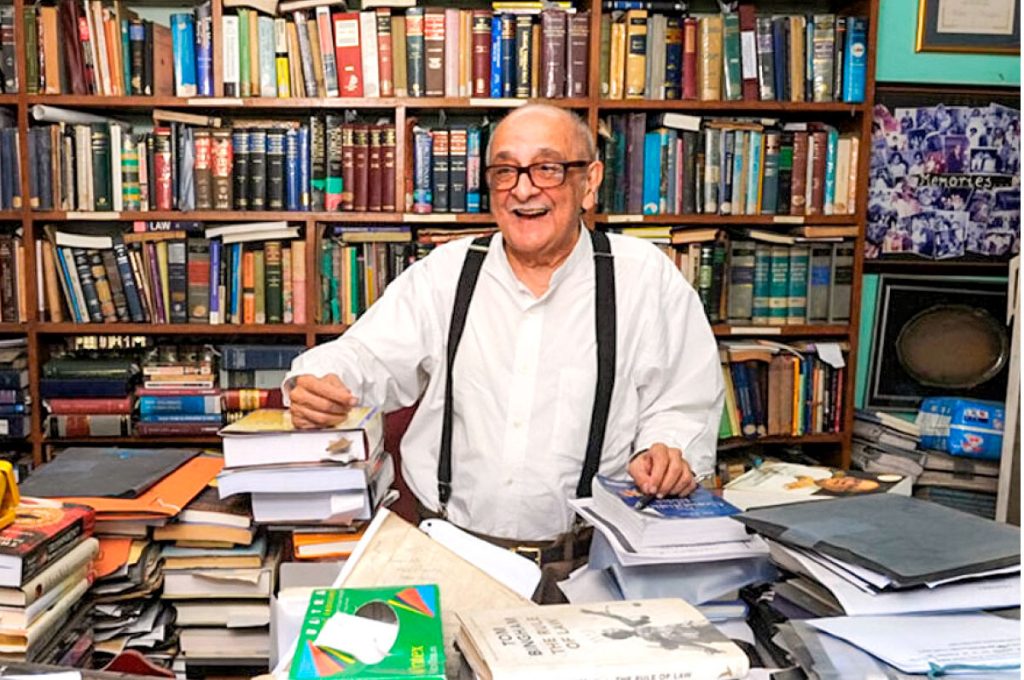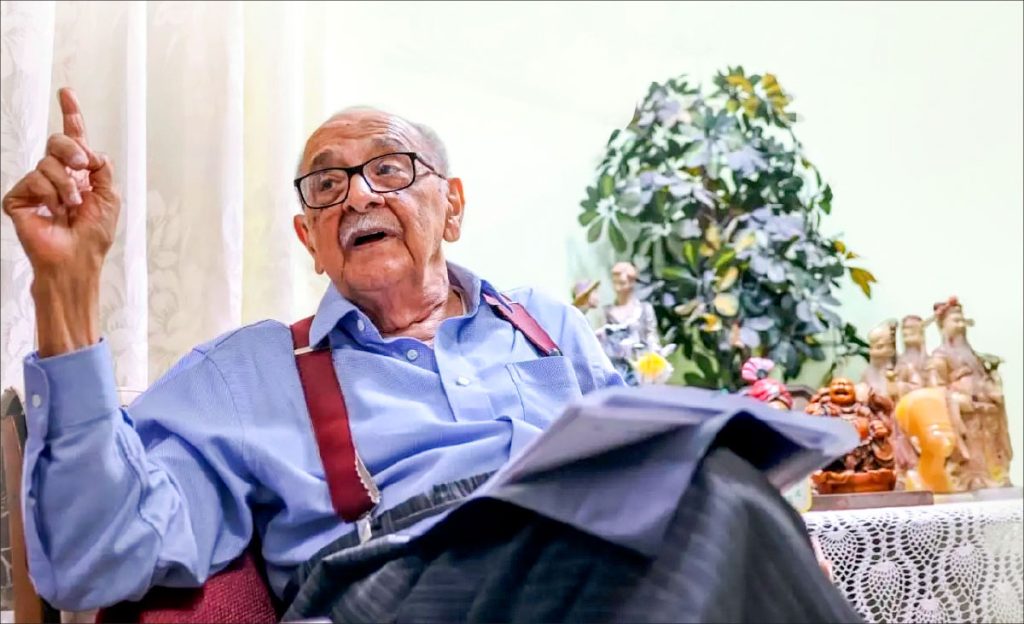
The country and its legal profession suffered an irreparable loss in the early hours of Feb 21 when Fali Sam Nariman crossed the bar to move to the Almighty’s court. He was 95, but age had dimmed neither the vigour nor intensity of the man. His last book was published just a few months back, his article in the Indian Express on the sidelining of Justice Muralidhar, co-authored with Justice Madan Lokur and this writer, is recent, and his interview with Karan Thapar on the Article 370 case still fresh in memory. “Old lawyers don’t fade away, they just lose their appeal” is a humourism in legal circles, but Fali neither faded nor lost his appeal to the many who loved and respected him.
Nariman was many things and so it is not difficult to write about him. He was many splendoured in what he did, so it is difficult, nay impossible, to paint a complete picture of the man and his work. As an advocate he was head and shoulders above his peers. His stentorian voice and forceful delivery, unassailable logic, deep knowledge of the law, assiduous preparation backed by a reputation for unwavering integrity made him an opponent to dread. But he was fairness personified in his duty to court and profession, and while he could bring down senior lawyers with ease he was kind and encouraging to juniors. Decades back, when in the Ram Setu case I opened the environmental arguments against the Sethusamudram Shipping Channel before the Chief Justice’s Bench, Nariman was lead counsel for the government. When I finished he said, loudly, “Now that is the way a case should be argued.” I prize no encomium more. Since then I have received many kindnesses from this hero of mine, including a sparkling introduction to my book Mediation: Practice and Law.
He was far more than the best lawyer. He was a prolific writer, and his books on law and justice carry a lightness of touch with the depth of mastery from years of engagement and reflection. He was one of the best public speakers, lacing his speeches with anecdotes, wit and wisdom. Much sought after for public interviews, he was both accessible and articulate. And he was the public intellectual par excellence, who kept standards of probity at a premium. Above all was his attitude to power. He cared a hoot for the power of power, and for those who wielded it wrongly. He delivered two notable slaps in the face — one on Mrs Gandhi’s government immediately after the Emergency was proclaimed when he resigned as Additional Solicitor General, and another on the Gujarat government after the attack on Christians when he returned its briefs. He was the tallest lawyer in the country, but he never became the Attorney General, no prizes for guessing why.

There is a clarity of mind that comes from exercising the faculty of plainspeak, which is lost to those who fail to speak when they should. Nariman didn’t mince words, he didn’t spare persons who needed to be called out. He called a spade a spade, not a flawed diamond. And the higher the office holder, the sharper the phrase. But anger was less acute than disappointment. For he wasn’t focused on running down a person, his cross-hairs were fixed on issue and action and consequence. Secular India had no better champion than him. Parsi himself, born in Rangoon, early years in Bombay, he knew the intrinsic value of the mosaic that this country is, and he abhorred the unichrome. In St Stephen’s College case he helped to bring in the law to protect minority educational institutions, and he deeply deplored the failure of the court to scotch the controversies around places of worship.
He was one of a very select group of those who stood out boldly and strongly, in conviction, attitude, thought and speech — the League of Extraordinary Legal Gentlemen. With his passing, the candle dims. While our farewells are lacerated with grief, we must remember however that the best tribute we can pay, and the best testament of our love and respect for him, is to hold fast to the traditions he exemplified. If we do that, the Old Warrior will rest in peace.
The writer is a senior advocate and mediator
This article was first published in The Hindu.






